This conference is aiming to give you an insight into PFAS in Food, Packaging and the Environment. You will be familiarised with the current regulatory developments, analytical challenges, toxicological findings, and practical approaches to risk assessment, substitution and mitigation of PFAS along the food chain and in the wider environment.
On 20 August 2025, the European Chemicals Agency (ECHA) published an updated REACH proposal to restrict PFAS, including a comprehensive ban on their use in packaging materials for food contact and consumer applications. This measure is designed to better protect human health and the environment.
Contaminants such as PFAS are strictly regulated in the EU, and their risk management and toxicological assessment continue to present challenges across the food and packaging sectors, as well as for participants from the plant protection industry.
This online conference brings together leading experts and professionals from the food and beverage industry, packaging sector, plant protection industry, food trade, laboratories, research institutes, authorities, and professional associations to discuss the latest developments in PFAS analysis, regulation, toxicology, and risk management.
The conference brings together experts and decision-makers from across the food supply chain who are dealing with the analytical, regulatory, toxicological and practical aspects of PFAS.
Groups that should take part: Regulatory, scientific, quality assurance, analytical, product safety and legal professionals who want to stay up to date on the latest developments affecting the food, packaging and environmental sectors in Europe.
Sectors that should take part: Food and drink industry, packaging industry, plant protection industry, food trade, food inspection offices, laboratories, professional associations
Picture Credit: © AdobeStock – la_puma
Timings are in Central European Time, CET.
Thomas Simat, Technische Universität Dresden, Germany
Thomas Gude, Independent Consultant, Switzerland
Frauke Averbeck, Federal Institute for Occupational Safety and Health (BAuA), Germany
Nicola Forrer, Cantonal Laboratory Ticino, Switzerland
Veerle Vanheusden, European Commission, Belgium
Natalie Konings, law firm Bird & Bird, Belgium
Luke K. Ackerman, U.S. Food and Drug Administration (FDA), USA
Ron Hoogenboom, Wageningen Food Safety Research (WFSR), The Netherlands
Nawel Bemrah
Aurélie Matthieu
François Pouzaud, all French Agency for Food, Environmental and Occupational Health Safety (ANSES), France
Timings are in Central European Time, CET.
Klaus Abraham, German Federal Institute for Risk Assessment (BfR), Germany
Alexander Eckhardt, German Environment Agency (UBA), Germany
Deepak Kapoor, Gujarat Fluorochemicals, Germany
Max Schneider, PTS Institut für Fasern und Papier, Germany
Runa S. Boeddinghaus, Agricultural Technology Centre Augustenberg (LTZ), Germany
Thierry Delatour, Nestlé Research, Switzerland
Name
Company
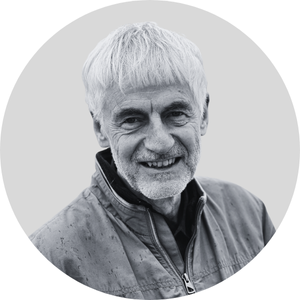
Klaus Abraham
German Federal Institute for Risk Assessment (BfR), Germany
Klaus Abraham is a Senior Toxicologist at the German Federal Institute for Risk Assessment (BfR). He is head of the unit \"Nutritional Risks and Biomarkers\". The group's research focuses on studies in humans with regard to kinetics, internal exposure and toxicology.
morelessLuke K. Ackerman
U.S. Food and Drug Administration (FDA), USA
Luke K. Ackerman is an Analytical Research Chemist at the U.S. FDA’s Center for Food Safety & Applied Nutrition, specialising in chemical method development, food contaminant identification, and packaging safety analysis. With over 15 years at the FDA, he focuses on advancing analytical technologies, including direct/ambient ionization mass spectrometry, to support food safety assessment and enforcement.
moreless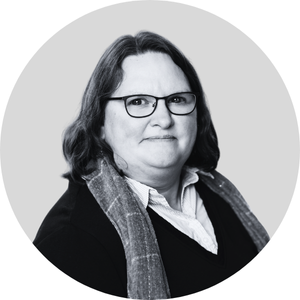
Frauke Averbeck
Federal Institute for Occupational Safety and Health (BAuA), Germany
Frauke Averbeck is a scientific officer working at the Federal Institute for Occupational Safety and Health (BAuA) in Division 5, the Federal Office for Chemicals (BfC), which is the German Competent Authority for REACH, CLP and Biocides. Her main tasks encompass the overarching coordination of the German national activities in regulatory risk management under REACH. In the context of the current work on the PFAS restriction dossier she also coordinates the joint work of the authorities of the cooperating Member States (Germany, the Netherlands, Denmark, Sweden and Norway).
morelessNawel Bemrah
French Agency for Food, Environmental and Occupational Health Safety (ANSES), France
Nawel Bemrah is a senior project manager in the Risk Assessment Department of the French Agency for Food, Environmental and Occupational Health Safety (Anses). She mainly works in the field of dietary exposure and risk assessment linked to additives and chemical contaminants in foods, providing scientific support to the scientific expert committees of Anses, as well as ensuring scientific coordination of working groups (Nitrates/Nitrites, PFAS).
morelessRuna S. Boeddinghaus
Agricultural Technology Centre Augustenberg (LTZ), Germany
Runa S. Boeddinghaus is a soil scientist and researcher at the Center for Agricultural Technology Augustenberg (LTZ), Germany, specialising in agricultural soil protection. At the moment, she focuses on PFAS transfer from soil to crops, and on practical strategies for monitoring contaminated agricultural areas.
morelessThierry Delatour
Nestlé Research, Switzerland
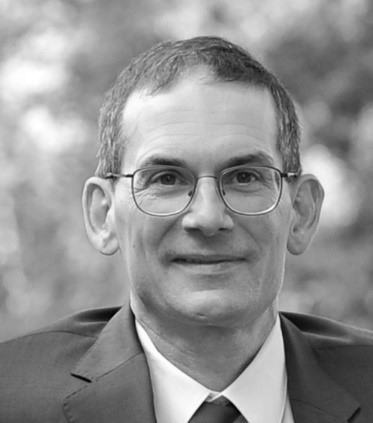
Alexander Eckhardt
German Environment Agency (UBA), Germany
Alexander Eckhardt is a Biologist and regulatory scientist at the German Environment Agency (UBA) in Bad Elster/Germany in the division “Toxicology of Drinking Water and Swimming Pool Water”. Since 2015 he has been a specialist toxicologist of the DGPT and European Registered Toxicologist. As a member of the WHO Technical Advisory Group on Water Quality and Health (WQTAG), he is involved in updating the Guidelines for Drinking-Water Quality. He is also a member of the Working Group Toxicology of PFAS of the German Drinking Water Commission.
moreless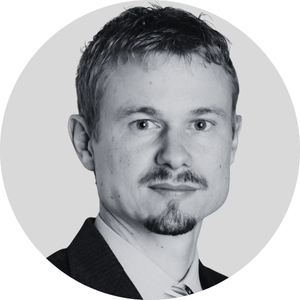
Nicola Forrer
Cantonal Laboratory Ticino, Switzerland
Nicola Forrer is a chemical engineer and director of the Cantonal Laboratory in Ticino (Switzerland), which does intensive work on the analysis and assessment of contaminants in food and water samples. He has been actively involved in nationwide monitoring campaigns on PFAS in fish, meat, and eggs coordinated by the Swiss Association of Cantonal Chemists (ACCS).
moreless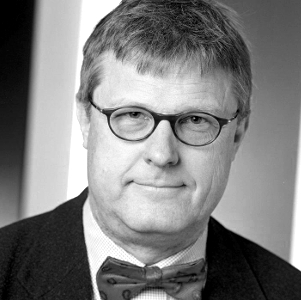
Thomas Gude
Independent Consultant, Switzerland
Thomas Gude is Managing Director of Thomas Gude GmbH, which specialises in consulting in the areas of food contact materials, food and non-food. After about 30 years with authorities, the pharmaceutical and chemical industries and a long time as the operational manager of a Swiss laboratory, he now deals with risk assessments, especially in the food contact and consumer goods sector. In addition, he teaches at various universities and technical colleges, in particular at ETH Zurich.
moreless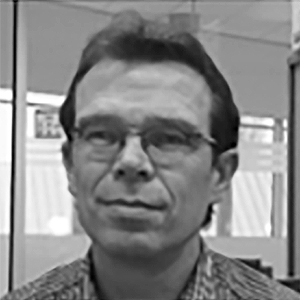
Ron Hoogenboom
Wageningen Food Safety Research (WFSR), The Netherlands
Ron Hoogenboom is the Assistant Programme Leader Food Contaminants at Wageningen Food Safety Research, dealing with environmental contaminants, pesticides and toxins from moulds, algae and plants. Since 2012 he has been a member of the EFSA CONTAM Panel and was the vice-chair of the WG on PFAS. In July 2025, he was elected as the second vice chair of the EFSA Scientific Committee.
moreless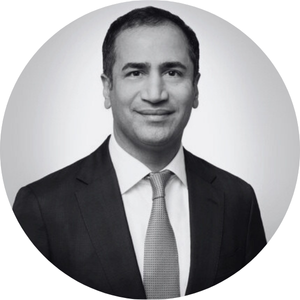
Deepak Kapoor
Gujarat Fluorochemicals, Germany
Deepak Kapoor studied Chemical Engineering with specialization in Polymer Science and Masters in Business Administration. He has overall 23 years of industry experience in Business and Strategy roles. Currently, Deepak is working with Gujarat Fluorochemicals Limited – one of the leading Fluoropolymers & Chemicals producers globally. He is leading company's global strategy for fluoropolymers, advocacy and government affairs. He is also the Managing Director of company’s subsidiary located in Germany.
moreless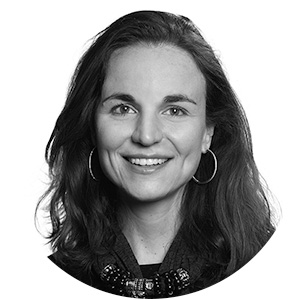
Natalie Konings
Bird & Bird, Belgium
Natalie Konings is a Partner in the Brussels office of Bird & Bird. Natalie has specialised experience in biocides alongside her work on registration, evaluation, authorisation and restriction of chemicals (REACH) matters. She is regularly instructed to advise on product authorisations, labelling and recall of chemical products and is also involved in the establishment and running of task forces and consortia related to REACH and the Biocidal Products Regulation. Her expertise also covers the chemical regulatory aspects of cosmetics, medical devices, pharmaceutical and other products. Additionally, Natalie is often involved in litigation and represents clients in front of arbitration instances, as well as in ECHA Board of Appeal cases.
morelessAurélie Matthieu-Huart
French Agency for Food, Environmental and Occupational Health Safety (ANSES), France
Aurélie Mathieu-Huart is a Deputy Head at ANSES (French Agency for Food, Environmental and Occupational Health Safety), specializing in toxicology and risk assessment. She has contributed to the development of health reference values for various substances.
moreless
Max Schneider
PTS Institut für Fasern und Papier, Germany
Max Schneider studied environmental chemistry and is currently working as a Project Manager in the FCM (Food Contact Materials Team) team at PTS – Institut für Fasern & Papier in Heidenau, Germany. For the last ten years he took care of the GC laboratory in Heidenau, dealt with customers’ requests of all kind as well as working on different research projects in the field of food contact materials.
moreless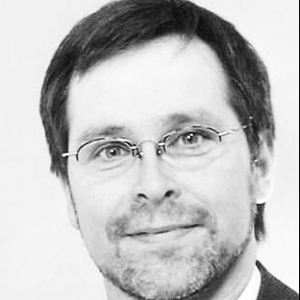
Thomas Simat
Technische Universität Dresden, Germany
Thomas Simat has been a Professor and the Chair of Food Science and FCM at the Technische Universität Dresden with research on FCM since 2003. He is the Chairman of the ‘German BfR Committee on Consumer Products’’.
moreless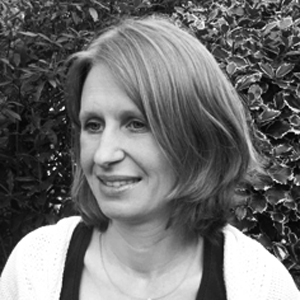
Veerle Vanheusden
European Commission, Belgium
Veerle Vanheusden is a Policy Officer in DG SANTE of the European Commission. She joined the European Commission in 2013, where she worked for four years in the Unit “Pesticides and Biocides”. In 2017 she moved to the Unit dealing with food processing technologies and novel foods, where her main area of activity is the EU policy and legislation on contaminants. She has previously worked in the private pharmaceutical sector.
morelessParticipation Fee: € 895.00 plus VAT.
The registration fee includes the following benefits:
Representatives of an authority or a public university are therefore eligible for a reduced fee of € 595.00 plus VAT per person (please provide evidence). The reduced fee cannot be combined with other rebates.
Group Reductions
For joint bookings received from one company we grant a 15% discount from the third participant onwards.
Terms of Cancellation / Book without Risk
You can cancel your participation in our online events free of charge and without giving reasons in writing up to 1 week before the start of the event. In the case of later cancellations and non-login to the online event, no participation fees can be refunded.
In this case, however, you will receive access to the documentation after the event.
You can name a substitute participant free of charge at any time.
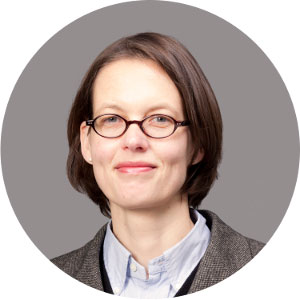
Sabine Mummenbrauer
Programme and conceptual design
+49 231 75896-82
smummenbrauer@akademie-fresenius.de

Sabine Mummenbrauer
Programme and conceptual design
+49 231 75896-82
smummenbrauer@akademie-fresenius.de

Sabine Mummenbrauer
Programme and conceptual design
+49 231 75896-82
smummenbrauer@akademie-fresenius.de
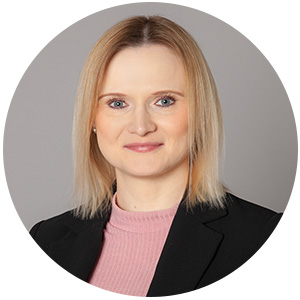
Jennifer Zerth
Organisation and participant management
+49 231 75896-79
jzerth@akademie-fresenius.de

Jennifer Zerth
Organisation and participant management
+49 231 75896-79
jzerth@akademie-fresenius.de
Present your Company at the Event.
You can personally present your products and services directly to your specified target group. We are happy to provide you with further information on our range of available options – from displaying company information at the reception counter to presenting your company with an exhibition stand.
We would be pleased to assist you personally:
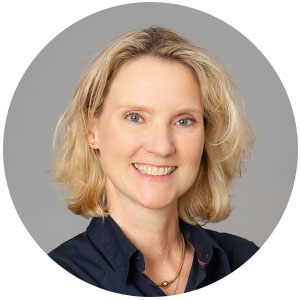
Monika Stratmann
Phone: +49 231 75896-48
info@akademie-fresenius.de
We offer journalists and editors a platform where they can get in touch with the experts.
If you are the editor of a specialist publication and interested in a press pass or media partnership, please contact us well in advance. We are happy to advise you.
Please contact us:
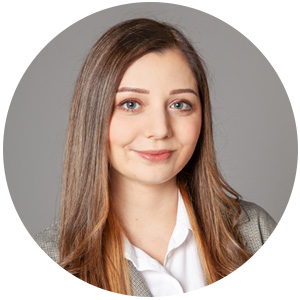
Katharina Geraridis
Phone: +49 231 75896-67
presse@akademie-fresenius.de
© Die Akademie Fresenius GmbH